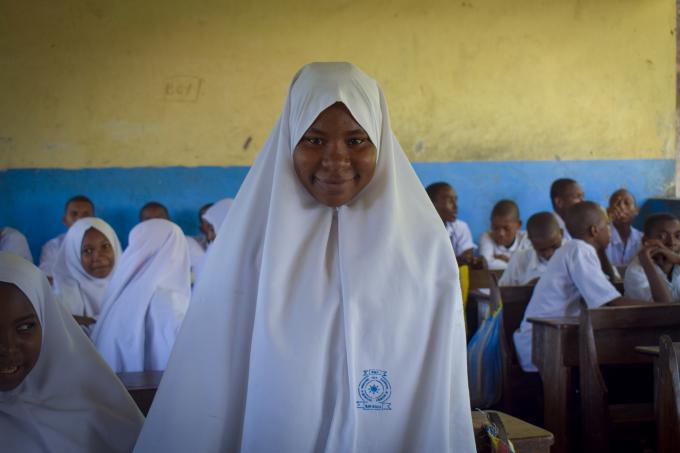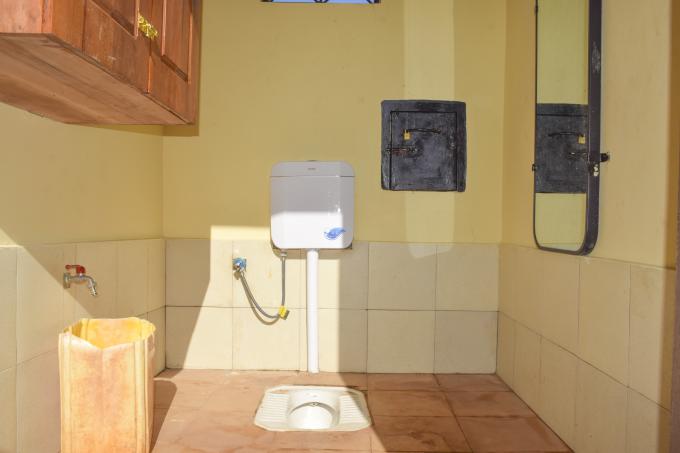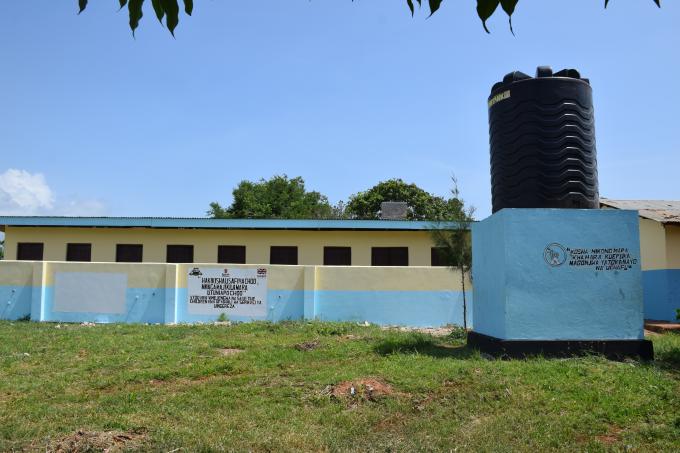Empowering Girls Through Water, Sanitation and Hygiene (WASH): A Story of Resilience and Dignity

Meet Maryum, a 14-year-old student from Mtemani Primary School in Zanzibar whose dreams of becoming a science teacher were almost shattered by a natural occurrence – menstruation. For Maryum, school days during her period were filled with discomfort, anxiety, and the fear of embarrassment. She would often miss classes, opting for the solace of home where she could relax, wash, and manage her menstruation more comfortably.
"I don't go to school when I feel uneasy, be it stomach pain or cramps. I have bad memories of my first day since it happened around the school," Maryum confided, highlighting the challenges many girls face during their menstrual cycles.
Maryum's story is not unique. In Tanzania, 20% of primary school girls miss classes for three to five days monthly due to menstruation, resulting in academic setbacks and, in some cases, leading to school dropouts. The lack of proper sanitation facilities and affordable sanitary pads further compounds the problem, leaving girls feeling unsafe in attending classes during menstruation.
Living with her grandmother, Maryum faced a dilemma – on how to address her menstruation challenges without feeling awkward or misunderstood. "I was afraid when I start asking questions about menses my grandmother will think I want to have a relationship, so I preferred not to ask her," she admitted.
Save the Children, through the Foreign, Commonwealth and Development Office (FCDO) funded project, recognized the urgent need to address menstrual hygiene management (MHM) challenges faced by girls like Maryum. The project focused on constructing latrines, providing disposable sanitary pads, and building handwashing stations to combat absenteeism and promote safety during menstruation.
With financial support from FCDO, Save the Children successfully implemented a project in 28 primary schools in Pemba Island, including Micheweni, where Maryum attends school. The project aimed to keep adolescent girls in school by providing them with factory-made reusable sanitary pads, ensuring access to dignified menstrual well-being.
Maryum, along with 5345 other students in Pemba, became beneficiaries of this initiative. The project not only distributed reusable sanitary pads but also constructed 28 handwashing stations and 6 modern latrines, addressing the broader issues of water, sanitation, and hygiene (WASH) in schools.
"I feel comfortable now; we have water around the school, and with these reusable sanitary pads, it is comfortable to change around the school compared to carrying a different piece of cloth throughout," Maryum expressed, highlighting the positive impact of the intervention on her daily life.
Save the Children did not stop at distributing sanitary pads; but took a holistic approach to empower the community. The project provided safe hygiene education to 960 beneficiaries, including teachers, parents, and caregivers. The aim was to equip them with proper knowledge and understanding of MHM, ensuring they can support students like Maryum with their curiosities.
"Before starting the project, I met a student who thought that using disposable sanitary pads might cause urinary tract infections (UTI). To address this concern, I had to get creative and provided a folded scarf when she declined the offered pad. After completing the project, the community's understanding has significantly changed. Thanks to more education about menstruation, everyone now recognizes that sanitary pads are safe. This has led to broad acceptance and increased use within the community" shared Mariam Maalim, a 27-year-old teacher, emphasizing the importance of menstrual education.

The project not only addressed the immediate needs of girls like Maryum but also worked towards sustainability. Save the Children provided training of making of reusable sanitary pads and MHM to parents, caregivers, school teachers, and religious leaders.
Maryum's journey reflects the transformative power of investing in WASH. By ensuring access to clean water, proper sanitation facilities, and menstrual hygiene management, Save the Children is not just keeping girls in school but also preventing gender-based violence. When girls have the tools and knowledge to manage their menstruation with dignity, they become empowered, resilient, and more likely to pursue their dreams.
Through initiatives like these, Save the Children continues to make strides in creating a world where every child, regardless of gender, can thrive, learn, and reach their full potential.
 Tanzania
Tanzania 